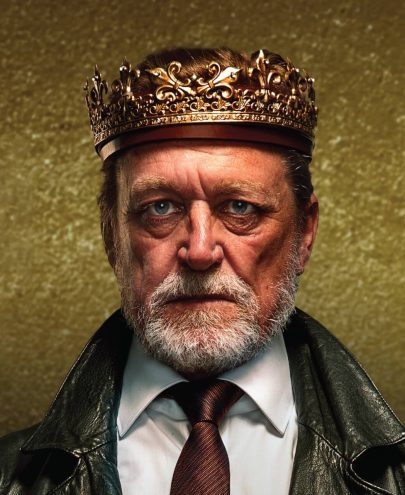Mar 12, 2016 Theatre
 Brass Poppies adds to the swelling list of our centennial remembrances of WWI. We return once again to Chunuk Bair, the (un)making of our nation. A Turk tells us that “when history is in the making, there is nothing to understand”.
Brass Poppies adds to the swelling list of our centennial remembrances of WWI. We return once again to Chunuk Bair, the (un)making of our nation. A Turk tells us that “when history is in the making, there is nothing to understand”.Since that campaign we’ve retold that history in many different ways, from speeches at April dawns, to film, TV, and Maurice Shadbolt’s play Once on Chunuk Bair. Composer Ross Harris and librettist Vincent O’Sullivan’s chamber opera manages to be both romantic yet unsentimental, earnest yet cynical, and deeply committed to resisting the trap of nationalism at all cost. Director Jonathan Alver aims to restore the poppies from the brass of time and memorialisation to the vivid red of human emotion, of lives lived, and lost.
The relocation of this production to the underutilised Mercury Theatre brings us even closer to history. In 1914 this venue was four years old, then known as the Kings Theatre.
We see four men – Fred, Billy, Tom, and Colonel William Malone – their silhouetted uniforms etched into our cultural memory. Their faces appear in close-up, projected onto four strips standing to attention at the back of the stage. Their expressions are fixed, unblinking, stoic and brave. Now it’s four women in elegant period gowns. Their faces are allowed to emote with care and worry. They are all caught up in global politics and gender roles.
They are on their last leave before the Wellington battalion is shipped off – “so make the most of it” advises Colonel Malone (James Egglestone). Young Billy (Jonathan Eyers), emboldened by his flash uniform, makes a connection with love-struck Joyce (Madison Nonoa), representatives of a generation interrupted. There are some intruders in this home scene. The pale Turk (Andrew Glover) stalks the soldiers even in Wellington. And two unknown warriors, painted with throbbing blue veins on their heads, join the dance. Maaka Pepene choreographs their movements so it is ambiguous whether they are holding a partner or a rifle.
Camp life is shown through a card game, where Anna Leese embodies a fickle lady luck, favouring different hands. It’s all a rather clean portrayal of the soldier’s world.
Though the boys are a million miles from Cuba St, the staging shows how close they are in each other’s minds, juxtaposing life in Wellington and Gallipoli.
I said it was romantic. Even Malone gets a love aria. A moving sequence is when thoughts turn to these distant loved ones. One soldier misses the clutter in the kitchen when the tea is about ready. “We’re as scared as you’d be,” he sings, and can’t fathom how this fellow soldier can be here one moment, and gone the next. In Wellington, Joyce has forgotten the sound of Billy’s voice.
It’s all over very quickly. O’Sullivan does not bother with the usual Bair heroics. We get nothing of the original capture. No betrayal by the British. No Maori contingent. No VC Bassett. Just that they came, and they died.
But Brass Poppies doesn’t end there. In a sort of afterlife, a Father Britain tries to give meaning to their “sacrifice”. He has endless supplies of wreaths and clichés. They are heroes. “We hadn’t thought of that one sir,” says one solider. It is in fact the afterlife of the Anzac myth, all that has subsequently been placed on them.
The New Zealand flag makes a powerful appearance on the screens, its deep blue, cross of stars, and jack stripes iconic and resonant (for what it’s worth, ferns are nowhere to be seen). But it is not pride we see, but rage. The soldiers denounce nationalism and heroism.
Implicitly, if this is a symbol of what they fought and died for, then it is also a symbol of shame. This may yet sway some wavering referendum voters. A soldier is frank: blow your bugles to buggery.
It’s this mix of poeticism and plain-talking that makes Vincent O’Sullivan’s libretto so brilliant. Ross Harris gives it further potency. The score is perpetually overcast, never settling on a particular motif, as if to fight against any notes of glory. The last post sounds, and is quickly silenced.
The score is perpetually overcast, never settling on a particular motif, as if to fight against any notes of glory.
In questioning the way we remember Gallipoli, Brass Poppies questions its own right to exist. Why are we telling this story again? When do we let the dead rest?
So, does Brass Poppies give us something new to understand about Chunuk Bair? Maybe not. Its own conclusion is that there really is nothing to understand.
It’s a cry of incomprehensible loss. It is a significant work, a commanding achievement from the creative team.
Though written in 2009, it has been produced at exactly the right time. The ritual of remembrance continues. Brass Poppies is an outstanding way to remember, and to critically question.
Brass Poppies, New Zealand Opera, Mercury Theatre, last show March 12.





